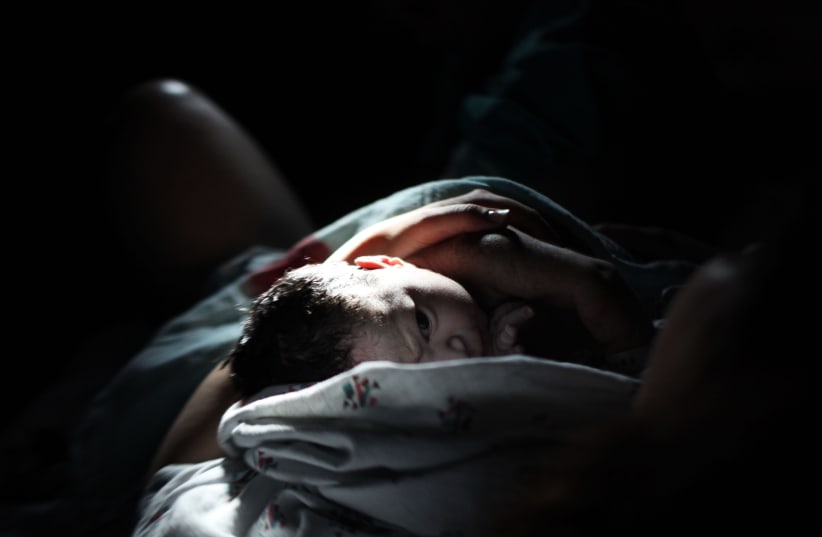Birth is one of the significant events in the life of a birthing mother and the family as a whole. Although most hospital births may be remembered as an experience of courage, success and inner strength, there are also women who experience the event as negative and traumatic. Is Israel doing everything it can to make this experience as comfortable as possible?
This question was explored in a new Israeli study. It will be presented at the annual conference of the Israel National Institute for Health Policy Research at the end of April, led by doctoral student Sirat Abu-Hemed and Prof. Nihaya Daoud of Ben-Gurion University of the Negev (BGU).
The study seeks to shed light on women for whom the birth event was negative and even traumatic and understand how to prevent such experiences from occurring in the future. The conclusions are based on 26 in-depth interviews with women who gave birth during 2020 in 10 different public hospitals.
The women surveyed — 12 Arab women (nine Muslim and three Christian) and 14 Jewish (two ultra-Orthodox, five religious, three traditional and four secular) testified to the disparaging and disrespectful attitude that they received. This was expressed in, among other things, their lack of privacy, treatment they were given without explanation, feeling insecurity or mistrust regarding the staff, the absence of a therapeutic sequence and a general feeling of lack of control over their bodies.
“I was lying [there], completely naked, my daughter with me and there’s a train of people in the delivery room,” said one of them.
“The midwife examined me cruelly – it really hurt. She was a cruel midwife.” Another participant described her midwife as “cynical and sarcastic”; another said “she just wasn’t warm.”
The women also talked about experiencing severe feelings of an imbalance of power and staff unavailability. Some women even reported experiencing violence, and some from the Arab sector reported discrimination and racism.
One Arab woman said that, in her opinion, “the treatment of me was different. The Arabs are treated as inferior. I felt it even in the nursery.”
Another participant from the Arab sector testified: “I was treated nicely compared to the Bedouin women who were with me. They were treated like insects. I did not feel racism towards me, because I am without a head covering and my husband and I look normative and speak Hebrew.”
The study findings show that many women experience treatment in medical centers as disrespectful. The researchers hope that their conclusions will attract the attention of policymakers and sharpen the need to implement a more appropriate attitude towards birthing moms.
Abu-Hemed from the Department of Public Health at BGU chose to focus on the subject out of her personal connection to it.
She is a registered nurse who previously worked as the nurse in charge of a children’s wellness clinic. Both by virtue of her role and by being a mother herself, she understands the depth of the impact of the staff’s attitude towards birthing moms.
“Even if the birth is difficult, women remember the attitude more and repress the physical difficulty. When a woman feels respected – the whole experience changes,” she said.
“I live these feelings on a daily basis. Unfortunately, the situation in the country isn’t good in relation to other countries in this context, when some women feel helpless in the process. One of the significant problems is unavailability and standards,” Abu-Hemed said.
“If in other Western countries there is one midwife per mother on average, the average [here] is one midwife for every four mothers. The aim is for the decision-makers in the Health Ministry to go over the data and change the policy to ensure more respectful treatment of mothers.”

